Insurance Blog
Business Insurance
Providing Instant Insurance Quotes in Real-Time to Kentucky
Creating a logo for your business startup
 Many small businesses have great logos. Unfortunately, most of them go unrecognized by their prospects.
Many small businesses have great logos. Unfortunately, most of them go unrecognized by their prospects.
You know your business better than anyone.  So before hiring a graphic designer that has little or no connection to your business, consider the following.
- What is the purpose of a logo? Regardless of your answer, it’s critical that your end result achieves your business objective.
- Consumers are not looking for you; they are looking for your product or service. Don’t make your prospects guess, tell them or show them what you do.
- What lessons can be learned by examining the logos of successful businesses? My personal favorite is McDonald’s. What did the early McDonalds signs look like:

- over 1 million served
- the arch or arches of course
- but bolder and larger than anything else:¬† ‚ÄúHAMBURGERS‚ÄĚ AND ‚Äú15¬Ę‚ÄĚ
- Reproducing an image in a crisp clear format will create added expense. A cool logo is great, but you want your logo everywhere, from signs to shirts.
- Keeping it simple means your logo will be seen more often.
- A simple logo can be a good thing. Proof?
-
- Disney                                                 3 Circles, the mouse
- McDonalds                                         an M
- Apple Computer                               duh, an Apple
- oca-Cola                                          5 letters and a hyphen
- Nike                                                   A swoosh  (they paid $35 for it)
-
- Keep your logo simple and clearly communicate what your products or services are.   More importantly, does your logo achieve your business goals and objectives?
Brad Smith is an owner of TruePoint Insurance Group in Kentucky.  The agency offers risk management solutions ad much more to small business owners in Kentucky and Southern Indiana.
Risk Transfer for Registered Investment Advisors

As an investment advisor, your clients expect you to wear many different hats. Any of which would keep you busier than a three-legged cat in a sandbox:
Psychic: You’re expected to generate returns with 20/20 foresight.
Mind Reader: Investments within the tolerances of each investor’s unique goals and constraints.
Rocket Scientist: Manage risk using the qualitative and quantitative tools available to you.
When it comes to managing investments, it is critical to engage a professional. While not always obvious at first, risk management is much more than picking stocks. Failure to engage the services of a good investment advisor may be disastrous in the end.
Risk Management for Investment Advisors
As an investment manager, you are a risk manager. But risk comes in different shades. Your business is exposed to many different risks that can and should be managed. There are various paths and options to managing your business risk. But, it’s hard to envision one without the services of a specialized insurance agent.
E&O or Professional Liability coverage is one of the first risks that advisors seek to transfer. Your risk certainly doesn’t stop there, additional applicable coverages are considerable. Find the gaps in your business risk by consulting with a qualified insurance agent.
TruePoint offers a unique understanding of your industry. We understand risk management from both the advisor and insurance side. Contact us today.
Insuring Unmanned Aircraft (Drones) Part 2 of 3
  In part 1, we began our discussion of the challenges represented by UAVs. Compared to radio-controlled, model aircraft, UAVs are, often, larger, more expensive craft and may be equipped with extensive photographic and computer components. They are used in ways that substantially increase the chance of loss because they are used in different settings. Originally UAVs were used in the following, non-military ways:
 In part 1, we began our discussion of the challenges represented by UAVs. Compared to radio-controlled, model aircraft, UAVs are, often, larger, more expensive craft and may be equipped with extensive photographic and computer components. They are used in ways that substantially increase the chance of loss because they are used in different settings. Originally UAVs were used in the following, non-military ways:
- storm chasing 
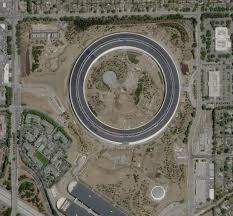
- mapping
- documenting land use changes
- agriculture
- search and rescue
However, eyes continue to be opened about the, nearly, endless versatility with these devices. Today, interest in the commercial uses of drones is viral. Companies are developing or actively using drones for the following:
- realty inspections
- pipeline inspections
- fast food delivery
- monitoring crops
- filmmaking
- insurance claims inspections
- surveillance
- wildlife monitoring
- news reporting on hazardous incidents and traffic reporting
- package delivery
The increase in the number of UAVs and their use around people will generate way more incidents involving injuries and collisions (with persons and property), dropped packages, flight malfunctions, accidents with other aircraft, etc.
Insurance companies are in the forefront, determining how current or new products have to be changed or developed in order to handle additional loss exposures that will be created by growing personal and commercial UAV use.
Besides exposures involving injuries, damage or destruction to UAVs and to other property; UAV risks will also involve personal injury such as invasion of privacy, trespass, etc. They may also expand cyber liability risks as UAVs will face hacking threats. They may also create broader threats of terrorism.
UAVs are a part of a changing risk landscape and, again, insurance professionals will take the lead in responding to the challenges they pose.
Access the third and final post for this series on Unmanned Aircraft at:
https://www.insuringky.com/blog/insuring-unmanne…ones-part-3-of-3/
COPYRIGHT: Insurance Publishing Plus, Inc., 2015
All rights reserved. Production or distribution, whether in whole or in part, in any form of media or language; and no matter what country, state or territory, is expressly forbidden without written consent of Insurance Publishing Plus, Inc.
Insuring Unmanned Aircraft (Drones) Part 1 of 3
Unmanned Aerial Vehicles ‚Äď Part 1
 For most of us, our relationship with aviation is passive. We, except for rare instances, are involved in flight as passengers, not as flight crew. We board aircraft, take our seats and allow pilots to transport us, handling all of the complexities of air travel.
For most of us, our relationship with aviation is passive. We, except for rare instances, are involved in flight as passengers, not as flight crew. We board aircraft, take our seats and allow pilots to transport us, handling all of the complexities of air travel.
Whether air transport involves moving people, goods or both, its efficiency in reducing the time it takes to travel over long distances from weeks and days to hours is rivaled only by its potential severity of losses.
Protection against loss involving cargo or passengers is handled by aviation insurance which is designed to respond to low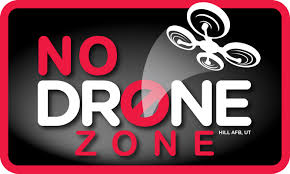 frequency but high severity accidents. Currently such policies are now being asked to handling an emerging, different exposure; unmanned aerial vehicles (UAVs).
frequency but high severity accidents. Currently such policies are now being asked to handling an emerging, different exposure; unmanned aerial vehicles (UAVs).
UAVs, aka drones, were developed initially for research, exploration and military use. In recent years, they have been increasingly exploited for personal and commercial use. Initially the potential for loss was low, similar to use of hobby, radio-controlled (RC) planes, copters, etc. But the situation with UAVs is transformative. RC aircraft are used recreationally. They are operated chiefly in wide open, isolated areas with little chance of interaction with persons or property. Losses usually involve damage to the aircraft. Injuries to persons typically are restricted to first aid for cuts, bruises and similar, fairly minor harm. Protection is adequately handled by homeowner policies or by specialty coverage provided by recreational RC flying clubs. That is NOT the case for UAVs.
For more information, please see Unmanned Aerial Vehicles ‚Äď Part 2
https://www.insuringky.com/blog/insuring-unmanne…ones-part-2-of-3/
COPYRIGHT: Insurance Publishing Plus, Inc., 2015
All rights reserved. Production or distribution, whether in whole or in part, in any form of media or language; and no matter what country, state or territory, is expressly forbidden without written consent of Insurance Publishing Plus, Inc.
Auto Dealer Operations
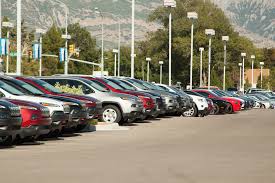
Garage operations are businesses that have hybrid coverage need. With such businesses, the lines between the general liability for the operations and the automobile liability exposures blur and overlap. A general liability policy does not provide enough coverage and a commercial auto policy provides too much. Fortunately, there is a way to properly handle this need. The Auto Dealers Coverage Form contains premises liability, products liability, automobile liability, and automobile physical damage coverage. Operations that should be protected by this policy include the following:
- franchise and non-franchise auto dealers
- truck dealers
- motorcycle dealers
- snowmobile and recreational vehicle dealers
- new and/or used trailer dealers
- vehicle repair shops
- service stations
- storage garages and
- public parking places
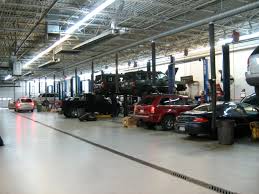
The Auto Dealers Coverage Form is flexible, having the ability to cover a wide variety of automobile loss exposures. Besides covering vehicles that are owned by the covered business, it may also cover vehicles that are non-owned (rented or borrowed), trucks and other non-private passenger vehicles, trailers and mobile equipment. Coverage may even apply to vehicles that are privately owned by employees, but were involved in a work-related loss; says an employee who has a collision in his personal car while returning from picking up lunch for his boss and co-workers.
An Auto Dealers policy may also be written to customize how coverage applies to different types of vehicles. For instance, Joe’s Towing Service has a fleet of four tow trucks, as well as a sedan used by the owner. The towing service also does repairs and regularly has customer vehicles on their premises. Rather than having both liability and physical damage on all cars the services either owns or handles, Joe selects the following:
- Liability and Physical Damage – for his two newer tow trucks and his sedan.
- Liability only – for his two, older tow trucks
- Physical Damage Liability only – for vehicles belonging to customers
Like other types of policies, an Auto Dealers coverage form also provides legal defense coverage. In other words, the policy handles the costs associated with defending the policy owner against claims and lawsuits. This protection does not affect the separate limits of insurance that are selected for the liability coverages.
COPYRIGHT: Insurance Publishing Plus, Inc. 2016
All rights reserved. Production or distribution, whether in whole or in part, in any form of media or language; and no matter what country, state or territory, is expressly forbidden without the written consent of Insurance Publishing Plus, Inc.
Fake Insurance

One of the most important actions a person can take to protect against the loss of property is to buy insurance. It involves taking time to find what type of coverage is needed, how much coverage is necessary, what insurer to deal with and whether one can afford adequate protection. Unfortunately, insurance consumers have a serious, additional concern….whether the insurance offered is legitimate.
Insurance consumers are frequently being lured into buying policies that turn out to be fakes. The counterfeit coverage is typically for auto and home
coverage and the practice is particularly concentrated in areas that have suffered catastrophes. Fake insurance is also being offered in areas where legitimate insurance has traditionally been expensive.
Sadly, the coverage is often discovered as fake after a loss has occurred and there’s been an attempt to file a claim. In such instances, a duped consumer has not only lost the money paid in “premiums,‚ÄĚ they now face an uncovered loss.
If you are searching for insurance, it is important that you do so carefully in order to make sure that your purchase is made from a reputable source. The most prudent action is to ask questions and avoid any situation that raises suspicion. Signs that an opportunity is fraudulent include the following:
-
- Insurance premiums that are much lower than what is typically offered
-
- Companies that downplay any requirements about eligibility for coverage
-
- Sources that attempt high-pressure to hurry you into making a decision
-
- “Insurers’ that ask for cash (either down payments or full payments)
-
- Lack of information about their coverage
- Applications that include requests for unnecessary financial or personal information
Your best protection against a high-risk scam is to seek out a qualified insurance professional.
COPYRIGHT: Insurance Publishing Plus, Inc.2017 All rights reserved. Production or distribution, whether in whole or in part, in any form of media or language; and no matter what country, state or territory, is expressly forbidden without written consent of Insurance Publishing Plus, Inc.
Insuring Kentucky Restaurants
      

                                               
Factors Influencing Premiums
Obtaining insurance for a restaurant is fairly simple.  However, finding the correct coverages at a reasonable price may be a bit more difficult.  Different cuisines, Franchises versus Mom and Pop, and the processes utilized for cooking are just a few of the factors that may influence a restaurants premium.  Other factors can have a more dramatic impact on premiums.  Alcohol sales, entertainment (such as live music or karaoke) and dance floors may make it harder to find coverage, which by default will push the cost of coverage higher.
 
Restaurant Safety                                               

Cooking areas are required to have automatic fire extinguishing devices.  Hoods and filters must be in place if grills and deep fat fryers are used.  Additional requirements will be fuel shut-offs, hand-held fire extinguishers, as well as receipts providing proof that inspections and hood cleaning are being performed as required.

Minimum Coverages
At a minimum, the following factors must be considered before purchasing a commercial insurance policy for a restaurant:
- Property Coverage-building, equipment, and inventories
- Autos
- All vehicles owned by the businesses
- Employee vehicles should be covered by a hired and non-owned vehicle policy if they are used in business activities (even it’s occasional)
- It is important that you make your agent aware of any vehicle, owned or non-owned, that is used for delivery
- Business Income ‚ÄďIn the event, your business is temporarily shut down due to a covered cause of loss, restaurants with business income coverage can access their insurance policy for loss of income.
- Workers Comp Coverage-Is mandated and enforced by each state
- If you server alcohol, your restaurant will need Liquor Liability Insurance.
This quick summary of restaurant insurance is not meant to be inclusive, nor is it a one size fits all.  Each restaurant is unique and insurance requirements vary.  If you would like additional information regarding a restaurant in Kentucky Tennessee or Indiana, contact a TruePoint Insurance Restaurant Specialist at info@truepointgroup.com or visit our website at www.insuringky.com
Wedding Insurance
Wedding Insurance

   Weddings, regardless of the current economy, are still quite expensive events. The average cost of a wedding still approaches $30,000. Insurance has become a necessary component to provide special protection for this extremely important, personal event.
Coverages vary, read your policy
Wedding insurance is not standardized, so policy wording can be quite different among the specialty insurance companies that offer protection. Wedding insurance can help protect against the huge expenses suffered if, for certain reasons, the wedding is either postponed or is canceled. Protection can be purchased to respond to loss involving unrecoverable expenses as well as to lawsuits that result from a wedding that is not held as planned.
Policy Coverages
Usually, to qualify for coverage, a wedding’s cancellation or delay has to be caused by an eligible source of loss/disruption such as catastrophic weather, a church where the wedding is to be held suffers smoke damage and is suddenly closed, or the reception caterer closes her business the day before the wedding.
Items covered by the policy are usually expenses that can’t be recovered (non-refundable). Eligible expenses often include the following:
- Facility Rental (church, reception halls, etc.) Costs
- Catering Costs
- Clothing Rental Fees
- Floral expenses
- Photographer Fees (in some cases, videographer fees may also qualify)
- Hotel Costs
- Transportation Costs (limos, taxi costs for transporting a wedding party or guests incurred by insured or honoree)
- Air Transportation
- Other miscellaneous, non-refundable costs
Eligible expenses include those related to the honeymoon as well. Examples of ‚ÄúOther expenses‚ÄĚ may be the deposits for services, such as florists, entertainers, etc. Naturally, payment of these costs is subject to the policy‚Äôs limit.
Wedding Personal Liability
Liability coverage protects against losses or lawsuits that allege that the insured/honoree is responsible for bodily injury, personal injury or property damage to a third party. However, any claim must be due to an incident that takes place at the wedding (including reception). The coverage obligation includes a duty to legally defend an insured/honoree against claims/losses.
Example: The Bridals are sued by a best man who was seriously injured when the nervous groom turned abruptly to get the wedding ring and knocked the best man off a podium.
Additional Coverage
Many wedding policies offer additional coverages such as:
- Photographs and Video Coverage
- Gift Coverage
- Rented Property Coverage
- Special Attire Coverage
- Jewelry Coverage
Your policy may give you the option to add Liquor Liability coverage.  If you plan to sell alcohol this policy should be a requirement.  Open bars?  Your liability is the same whether you are selling or serving.

Do yourself a favor
When some accident comes about to turn the big day into the big cancellation or the big disaster; having wedding insurance could take the financial sting out of the situation.
COPYRIGHT: Insurance Publishing Plus, Inc. 2017 All rights reserved. Production or distribution, whether in whole or in part, in any form of media or language; and no matter what country, state or territory, is expressly forbidden without the written consent of Insurance Publishing Plus, Inc.
USPS Contract Delivery Service Carriers
 
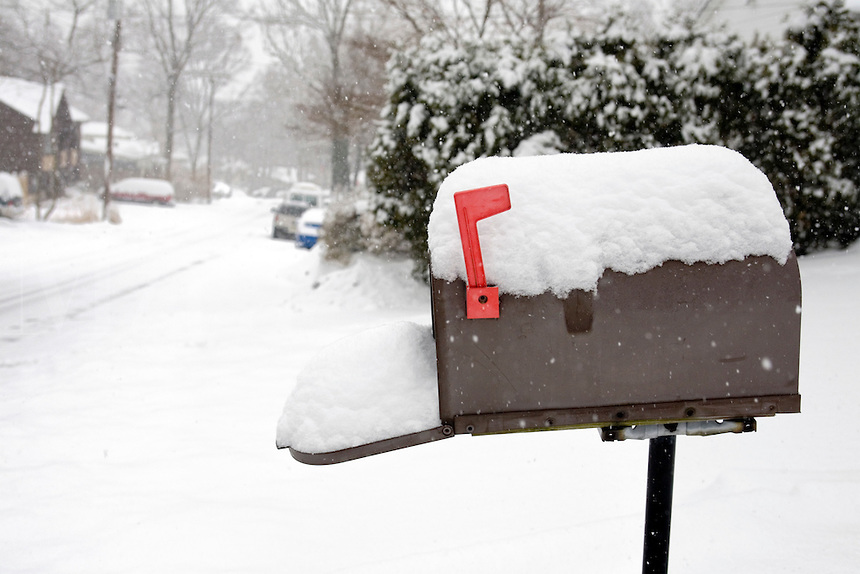
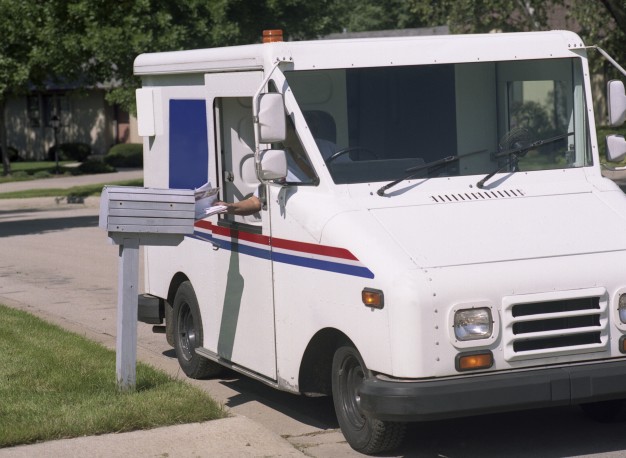
TruePoint Insurance Group, LLC
6287 Taylorsville Rd. Fisherville, KY 40023
6287 Eagle Lake Dr Lawrenceburg, KY 40342
Pooler, Georgia Location to be announced soon
Kentucky and Indiana Rural Letter Carriers: (502) 410-5089
Georgia and South Carolina Rural Letter Carriers: (912) 330-1265

 Contact
Contact
 Email an Agent
Email an Agent

 Click to Call
Click to Call Get Directions
Get Directions



